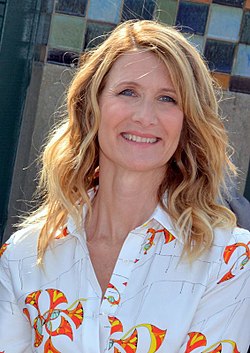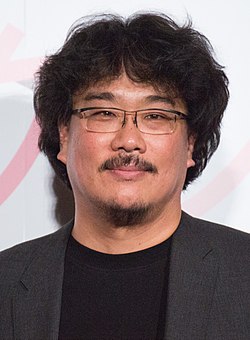The ceremony took place in the Royal Albert Hall and was hosted by Irish television comedian Graham Norton, [5] who had previously hosted the 2019 British Academy Television Awards. Viewing ratings for the ceremony fell to a twelve-year low, peaking at 3.5 million, though being the most-viewed show in the UK after 22:00. [9] The ratings drop may be a result of the broadcast delay, with many live news outlets publishing the results before they were televised and revealed on television. [9]
Discussions about the lack of diversity within the award nominations surrounded the ceremony, with the host referring to it as "the year when white men finally broke through". He also described eleven-time nominee Joker as "essentially the story of a white man who makes himself even whiter". [10] [11] Best Director presenter (a category of all-male nominees) Rebel Wilson joked about the absence of females in the category, quipping: "Honestly, I just don't have the balls." [12] Best Actor in a Leading Role winner Joaquin Phoenix used his speech to comment on the "systemic racism" of the BAFTAs and acting industry in general. [13] Speaking ahead of the ceremony, BAFTA chairwoman Pippa Harris addressed her frustration in the lack of recognition for female directors, as well as the issues around diversity as a whole. [9] In his closing speech to the ceremony, BAFTA president Prince William had prepared a speech discussing the issue, saying that "a wide-ranging review of the whole awards process" was underway and that lack of diversity "simply cannot be right in this day and age". [14]
1917 was the night's biggest winner, winning seven prizes in total of its nine nominations, including Best Film and Best Director (Sam Mendes), [6] despite not having any acting nominees and thus becoming a favourite for the then upcoming 92nd Academy Awards; it lost to Parasite . [9] Mendes became the first British winner to win Best Director in eleven years. [9] Since votes for the Academy Awards must be registered two days after the BAFTA Awards, Screen Daily noted that 1917 would be a safe choice for Academy members, who are averse to streaming films based on 1917's marketing as a "must-see on the big screen". [9] This compares to the Netflix film The Irishman being the night's biggest loser, taking no awards despite ten nominations; Netflix productions in total received twenty-three nominations, winning only two: Best Actress in a Supporting Role for Laura Dern ( Marriage Story ) and Best Animated Film ( Klaus ). [9] Screen Daily also suggested that there is anecdotal evidence of Netflix not supporting its nominees as much as it did last year for Roma (2018). [9] The writers of Screen Daily additionally suggested that there was some controversy surrounding the British identity of some films nominated for Outstanding British Film; 1917 is financed by the US, and Retablo is a Peruvian film co-produced with Norway and Germany, whose Peruvian director—Álvaro Delgado-Aparicio—only lives in London. [9] The ceremony also marked the first year since the 30th British Academy Film Awards (1977) in which there were no British acting winners. [9]
Wins marking diversity were Outstanding Debut by a British Writer, Director or Producer for Bait , a film described by its writer-director as "a black and white, 16-millimetre, hand-processed, post-synced film in Academy ratio about Cornish fishing people"; [9] Best Documentary for For Sama , a personal story of bombings at a Syrian hospital made by the family involved, with them using their speech to "implore the UK not to ignore the ongoing plight of the people of the Syrian city of Idlib"; [9] and the Rising Star Award for Micheal Ward, star of Rapman's Blue Story (which received no nominations), who used his speech to say that he "feels like we're going in the right direction" in terms of diversity. [9]
Best Actress in a Leading Role winner Renée Zellweger noted in the press room that she felt like part of "the British gang"; [15] after accepting her award, Hugh Grant had taken to the stage to present, quipping "well done Jones" as Zellweger left, a reference to their roles in the British film Bridget Jones's Diary (2001). [16] Later in the press room, the young Sama Al-Kateab, who had been held by her parents on stage while accepting Best Documentary, was allowed to roam and took to running the length of the stage and playing with microphones. [15] With his fifth win for Best Cinematography for 1917 , Roger Deakins becomes the most-decorated BAFTA winner in the category. Collecting his BAFTA, he said: "I think it was George Orwell that said all films are special but some films are more special than others, and for me this was a really special film." The recent Brexit was also mentioned, appearing in Brad Pitt's acceptance speech for Best Actor in a Supporting Role delivered by co-star Margot Robbie; Pitt's speech also noted that he would name his award "Harry" because he's going to take it to the United States. [17]
This page is based on this
Wikipedia article Text is available under the
CC BY-SA 4.0 license; additional terms may apply.
Images, videos and audio are available under their respective licenses.











